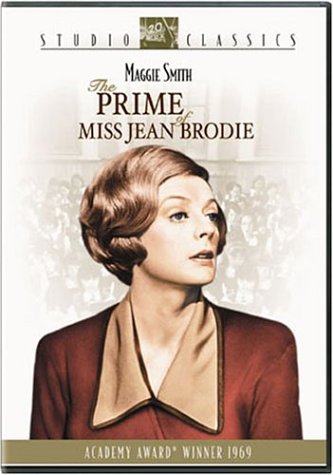
Education
Philosophies in The Prime of Miss Jean Brodie
In The Prime of Miss Jean Brodie, Muriel Spark uses the story of Miss Brodie and her ‘Brodie set’ to demonstrate the effect of an influential teacher upon her pupils. Miss Brodie’s teaching methods were shown to strongly affect each of the girls in different ways. It is clear that Miss Jean Brodie’s educational philosophy was very effective, however, to understand it thoroughly we must look at the positive and negative aspects.
As we read through the novel, what is shown is Miss Brodie’s
effect upon her pupils; the Brodie Set. Her influence, as a teacher, was
enormous. Sandy, the main character, closes the novel by replying to the
question “What were the main influences of your school days, Sister Helena? Were
they literary or political or personal? Was it Calvinism?”. Her response is
simple and understated: “There was a Mi ss
Jean Brodie in her prime.” (128) At this point in the novel, it is not necessary
for this to be boldly emphasized. The reader has come to see
that through constant observation and contact the girls came to learn from Miss
Brodie more than just school knowledge. They learned about life, in negative and
positive lights. The topics that are of value to Jean Brodie are not “regular”
curriculum topics. Instead, she teaches her girls what she believes is of value.
This is demonstrated most blatantly on page eleven. “Meantime I will tell you
about my last summer holiday in Egypt… I will tell you about care of the skin,
and of the hands… about the Frenchman I met in
the train to Biarritz…” (11) She was their leader, and in the following example,
it is shown that the girls of the Brodie set did indeed model themselves after
her ideals. “Miss Brodie as the leader of the set, Miss Brodie as a Roman
patron, Miss Brodie as an educational reformer were still prominent… The lack of
team spirit alone, the fact that the Brodie set preferred golf to hockey or
netball if they preferred anything at all, were enough to set them apart…”.
(111) As a teacher, Miss Brodie
was unparalleled in effectiveness. She taught the girls by example and as a
result influenced them for the rest of their lives.
ss
Jean Brodie in her prime.” (128) At this point in the novel, it is not necessary
for this to be boldly emphasized. The reader has come to see
that through constant observation and contact the girls came to learn from Miss
Brodie more than just school knowledge. They learned about life, in negative and
positive lights. The topics that are of value to Jean Brodie are not “regular”
curriculum topics. Instead, she teaches her girls what she believes is of value.
This is demonstrated most blatantly on page eleven. “Meantime I will tell you
about my last summer holiday in Egypt… I will tell you about care of the skin,
and of the hands… about the Frenchman I met in
the train to Biarritz…” (11) She was their leader, and in the following example,
it is shown that the girls of the Brodie set did indeed model themselves after
her ideals. “Miss Brodie as the leader of the set, Miss Brodie as a Roman
patron, Miss Brodie as an educational reformer were still prominent… The lack of
team spirit alone, the fact that the Brodie set preferred golf to hockey or
netball if they preferred anything at all, were enough to set them apart…”.
(111) As a teacher, Miss Brodie
was unparalleled in effectiveness. She taught the girls by example and as a
result influenced them for the rest of their lives.
Although Miss Brodie is effective her methods are often very unkind and inappropriate. This is demonstrated most starkly by her cruelty towards Mary Macgregor. Within the Brodie Set, Mary is the ugly one; the one who is picked on: she is the runt of the litter. Miss Brodie encourages the girls’ malicious behavior towards Mary and crushes any thoughts of kindness. “The sound of Miss Brodie’s presence, just when it was on the tip of Sandy’s tongue to be nice to Mary Macgregor, arrested the urge.” (30) Mary died
running back and forth, screaming in a burning hotel corridor (15), a scene that was foreshadowed during a chemistry class where Mary, in distraught, began to run to and fro between test tube explosions until someone could catch her and calm her down. (76)
One
of Miss Brodie’s biggest flaws is that she does not encourage the girls to think
critically. Instead she does all the thinking for them and presents her point of
view, discouraging any other views. A clear example of ‘brainwashing’ technique
is Miss Brodie’s habit of idolizing Mussolini and his empire. Miss Brodie
presents her own positive image of Mussolini, when instead she could encourage
the girls to analyze his rule in a critical light. “Sandy recalled Miss Brodie’s
admiration for Mussolini’s marching troops an d
the picture she had brought back from Italy showing the triumphant march of the
black uniforms in Rome.”(31). “Mussolini is one of the greatest men in the
world, far more so than Ramsay MacDonald…” (44)
d
the picture she had brought back from Italy showing the triumphant march of the
black uniforms in Rome.”(31). “Mussolini is one of the greatest men in the
world, far more so than Ramsay MacDonald…” (44)
Despite of her negative attributes, Miss Brodie does have some very positive philosophies. No matter what anyone said to the contrary, the Brodie set performed well in school and were well informed about the world in which they lived. “The girls were discovered to have heard of the Buchmanites and Mussolini…They were aware of the existence of Einstein…” (5) Miss Brodie focused on the subjects which she deemed important, however she fully expected the girls to keep up with their studies, if only to satisfy the rest of the world. Perhaps their excellence is a result of Miss Brodie’s belief that women should be wholly minded people. Another valuable attribute of Miss Brodie was that she treated the girls as adults intellectually. “I don’t believe in talking down to children, you are capable of grasping more than is generally appreciated by your elders.” (45). This philosophy is one that helps the girls to explore a wide range of subjects and instills in them, for the most part, a healthy curiosity about life and the world they live in.
Miss Brodie’s immersed in her life-long quest for knowledge provides a very powerful role model for the girls. They are able to see a woman who is eager to learn more, even though she is the one who is meant to be imparting knowledge. A particularly positive teaching technique is shown when, during Saturday afternoon tea, she has Sandy and Jenny teach her Greek. “I have long wanted to know the Greek language, and this scheme will also serve to impress your knowledge on your own minds.” (81) The fact that Miss Brodie is willing to make an effort to learn something as well as the girls reinforces her lesson, and so once again the girls learn by example.
Thus, Miss Brodie does in fact make a great effort to manipulate these girls for her own benefit, but when we analyze her educational methods critically it is possible to see that there are many positive effects upon the girls. Like many of our own childhood teachers, there are some who we remember in a negative light, and there may be a number who we often remember as “our favorite teacher!” If we are lucky, there may be that one teacher who greatly influenced the way we think. The difference is seen in the individual student once grown up. Some may act contrary to that teacher’s philosophy, a few may be influenced to mirror many of his or her ideals, and probably many other students will come to forget most of what they were taught. What we can all appreciate is that it takes an immense personality to be remembered as a great influence.
Authors: Clinton Lewis, Jessica Oliver, Kevon Cronin, Edward Enman, Clara Fraser
English 1406I0
Acadia University
Wolfville Nova Scotia